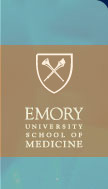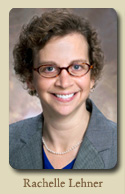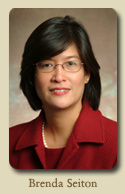



December 2008
Teachers take center stage
I always take pleasure each year in announcing the Dean’s Teaching Awards. Recipients were nominated by colleagues and students and chosen by the Teaching Awards Committee for their dedication to medical student teaching and their many contributions as course directors and mentors. All were invaluable to our curriculum implementation process.
Here are our most valued teachers for 2007-2008:
• Erica Brownfield (General Medicine) is an inspiration to other faculty as an educator and course director. According to the selection committee, she is “characterized by incredible enthusiasm. She conducts wonderful teaching rounds, taking every opportunity to teach.”
•Victor Faundez (Cell Biology) is a gifted lecturer and has put countless hours into course organization and curriculum development. His students consider him a fantastic instructor, and his fellow faculty value his philosophy that teaching is a privilege rather than an obligation.
• Nicolas Krawiecki (Pediatrics) is revered by students and esteemed by colleagues. They describe him as “gentle, wise, and profound, a professor who thinks deeply, speaks carefully, feels empathetically, and acts effectively.”
• Kimberly Manning (Medicine) is a role model to her students, an educator who has exceptionally high standards and who also cares deeply for her students. She has an extraordinary ability to disseminate complicated medical information in an easy-to-understand manner.
• Sankhavaram Panini (Biochemistry) is an outstanding lecturer and course director. Held in high esteem by both students and other teachers, he is known for his creativity, innovation, and energy in his support of students.
• Douglas Parker (Pathology) is a perennial favorite among students. He is one of Emory’s finest and most dedicated teachers, according to members of the awards committee. Doug is a gifted lecturer, has a relentless enthusiasm for teaching, and ignites an excitement for learning, especially in the laboratory.
• Winfield Sale (Cell Biology) is a skilled lecturer with the gift of clarity. He is described by his colleagues as “a tireless organizer who works behind the scenes to ensure that each student’s experience is the best we can offer.”
TOP
On track for staff development
We want to make the SOM the best place to work in Atlanta and the best among U.S. medical schools for faculty and staff. A cornerstone of the SOM is our staff, and their accomplishments and support are key to our success.
 How can we achieve our goals when our staff are employed in diverse locales from the Emory campus to our various hospitals and affiliates? Enter Rachelle Lehner, who came on board Sept. 15 in the newly created position of Assistant Dean of Staff Development. “To get a clear picture of what the SOM needed,” Lehner says, “I spent the first six weeks on the job listening to what staff and faculty had to say about their work and meeting with members of the faculty and staff development task force and many department administrators.” Carlos Del Rio (Medicine) and Katherine Heilpern (Chair, Emergency Medicine) are co-chairs of this task force, which recommended Lehner’s position.
How can we achieve our goals when our staff are employed in diverse locales from the Emory campus to our various hospitals and affiliates? Enter Rachelle Lehner, who came on board Sept. 15 in the newly created position of Assistant Dean of Staff Development. “To get a clear picture of what the SOM needed,” Lehner says, “I spent the first six weeks on the job listening to what staff and faculty had to say about their work and meeting with members of the faculty and staff development task force and many department administrators.” Carlos Del Rio (Medicine) and Katherine Heilpern (Chair, Emergency Medicine) are co-chairs of this task force, which recommended Lehner’s position.
Lehner recognizes the challenges we face. How can we better provide timely staff communication, a consistent staff recognition and award system, a school-wide best-practice policy that takes into account what is already in place in our many departments, and an adequate training system for a changing health care environment? She will address these issues with a new staff development council that will be formed in December and will begin meeting in January. The council will include people in a variety of positions and levels who were nominated by colleagues and faculty for their leadership abilities and desire to develop additional leadership skills.
The purpose of the council will be three-fold: (1) to facilitate communication across departments on staff development issues, ideas and resources, (2) to foster two-way communication between departments and the dean’s office, and (3) to develop a school-wide initiatives such as an orientation program, awards and recognition programs, and training opportunities.
“We may modify our position over time as additional needs are identified,” says Lehner. In addition to the council, Lehner will focus attention on leadership development, talent management, coordination of existing staff-development opportunities, training for department administrators, and process-improvement initiatives.
An Emory alumna, Lehner returns to Emory from the University of Kentucky Medical Center. She has more than 19 years of experience in staff development and related fields and a PhD in organization development from the University of Georgia.
TOP
Basic science at its best
The Department of Biochemistry continues to be recognized for its outstanding research and innovative teaching (see Panini’s award on front). Richard Cummings is Chair and William Patterson Timmie Professor of Biochemistry, a role he has served for more than two years. Under his tenure, the department has grown to 22 faculty, 15 post-doctoral fellows, and 25 graduate students. “Some of our investigations include predicting risks for colon cancer, defining the human glycome [strings of complex carbohydrates], and determining how diet and environment can jump-start disease,” says Cummings. The department has received several national awards and grants in recent months:
• Paul Doetsch (Biochemistry, Radiation Oncology, and Hematology/Oncology) is principal investigator of a new five-year, $7.4 million grant from the National Institute of Environmental Health Sciences. The grant will support work examining the link between oxidative stress and colorectal cancer, the second deadliest cause of cancer in the United States. This link “could help doctors predict colon cancer risk and design prevention regimes,” says Doetsch, who also serves as Deputy Director for Research at Emory Winship Cancer Institute.
• Cummings and David Smith, who direct the Glycomics Center, received a $1.2 million grant over four years as part of the NIH EUREKA (Exceptional, Unconventional Research Enabling Knowledge Acceleration) program. They will study the functions of and interactions between glycans (complex carbohydrates on the surfaces of human cells) and their binding of carbohydrate proteins and pathogens. Since the glycome is a more complex structure than the genome, Smith and Cummings have devised an innovative approach that should facilitate the task of defining the glycome and the functional interactions of complex carbohydrates with other molecules. Once defined, this work will “have an impact in defining the roles of complex carbohydrates in human biology and diseases, such as inflammation, immunity, cancer, and infection,” says Smith.
• The NIH has selected Georgia Research Alliance Eminent Scholar Xiaodong Cheng (Biochemistry) to participate in its Roadmap Epigenomics program of biomedical research. Cheng will receive a two-year, $350,000 grant to support his work with a new technique called SPOT peptide arrays, examining the enzymes that carry out the epigenetic process of methylation and identifying other proteins affected by it. Cheng says that epigenetics can help explain how diet and exposure to environmental chemicals influence our health and those of our children.
• Cummings has received the 2008 Karl Meyer Lectureship Award from the Society for Glycobiology in recognition of his many contributions to the field over his nearly 30-year career. He also co-edited the recently published Essentials of Glycobiology, a second-edition textbook that is available free online at ncbi.nlm.nih.gov under “Bookshelf.”
TOP
Award for Distinguished Research
 Georgia Research Alliance Eminent Scholar Max Cooper (Pathology) received the Association of American Medical Colleges’ 2008 Award for Distinguished Research in the Biomedical Sciences.His research led to some of the most important organizing principles of the immune system, including the T and B lymphocytes; how they work to protect against infection; and what happens when they act abnormally.
Georgia Research Alliance Eminent Scholar Max Cooper (Pathology) received the Association of American Medical Colleges’ 2008 Award for Distinguished Research in the Biomedical Sciences.His research led to some of the most important organizing principles of the immune system, including the T and B lymphocytes; how they work to protect against infection; and what happens when they act abnormally.
TOP
New assistant VP for research administration
 Brenda Seiton, former associate dean for administration in the SOM, has been appointed assistant VP for research administration in Emory’s new conflict-of-interest office, established to oversee administration and enforcement of COI policies across the entire university.
Brenda Seiton, former associate dean for administration in the SOM, has been appointed assistant VP for research administration in Emory’s new conflict-of-interest office, established to oversee administration and enforcement of COI policies across the entire university.
For more information, see coi.emory.edu
More kudos
• The March of Dimes honored Genetics Chair Stephen Warren with the Champion for Babies Award. He led the international team of scientists who in 1991 discovered the gene responsible for fragile X syndrome. Warren and his colleagues maintain one of the largest federally-funded fragile X research programs in the country. They are working to unravel the molecular mechanisms of fragile X syndrome to understand the behavior and neurological phenotypes of carriers of the fragile X mutation.
• James Hughes (medicine and public health) was elected vice president of the Infectious Diseases Society of America. Hughes serves as executive director of the Southeastern Center for Emerging Biologic Threats and director of the Emory Program in Global Infectious Diseases.
• The Institute of Medicine elected Helen Mayberg (Psychiatry), to its 2008 class, bringing Emory’s total IOM membership to 22.
• The Emory Alumni Association awarded Kamal Mansour
(cardiothoracic surgery) the 2008 Emory Medal. Mansour, who has been at Emory since 1968, has provided advanced cardiothoracic surgical services and training in the Middle East.
• Junaid Razzak, formerly of Emergency Medicine, returned to his native Pakistan several years ago to begin development of emergency medicine at Aga Khan University. In August, he got his wish. The university approved the establishment of an emergency medicine department, naming Razzak as chair.
“He has weathered earthquakes, political unrest, and academic resistance and withstood it all,” says Emergency Medicine Chair Kate Heilpern.
TOP
Current Issue • Past Issues • SOM Home
Contact Us • Give a Gift
Copyright © Emory University, 2008. All Rights Reserved